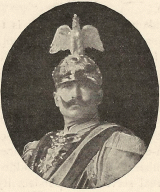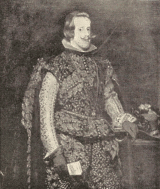The Dressing of the Hair, Moustachios and Beard (11)
Previous page"The favour, dear Madam, we wish of you, is to remonstrate with these smart gentlemen, and, with us, tell them they are incapable of correcting the foibles in the ladies' dresses, till they have established a criterion for their own. Did they adopt no other fashions than useful and becoming ones, they might have some solid reasons for reprehending us; but how is this to be done? Can they point out of what use are the high-crowned hats, their shoes tied with strings, the number of buttons lately added to their coats: of what real service that ponderosity of their watches and canes? We will even attend to the Green Grocer, if he can defend them, and no longer despise the opinions of those scrutators of our dress; but till then we must insist that the hoop (the battery at which most of their present artillery is played off against), when of a moderate size, is an addition to the appearance of a fine woman; it is a finishing grace to their persons, and gives them that dignity of appearance that every woman in a genteel line of life has a right to assume."
Although Kings have often vainly endeavoured to impose their will upon the people in the matter of apparel it has often happened that monarchs have set the prevailing fashion of the period. This is especially noticeable in the Cavaliers of Charles I, numbers of whom adopted the short, pointed beard and moustachios and long hair of their master, in striking contrast to the close cropped and shaven round heads of the Cromwellians. It was so with the Bonapartists of the Third Empire, when the "imperial" became the vogue.
 At a still more recent period, the illustrious personage who is figured here, and who, be it
known, appears here strictly incognito (we would fain escape the dire consequences of lèse-majesté), has imposed his imperious will,
notonly upon his own countrymen, but upon the world at large, in the matter of the turned up moustachio.
At a still more recent period, the illustrious personage who is figured here, and who, be it
known, appears here strictly incognito (we would fain escape the dire consequences of lèse-majesté), has imposed his imperious will,
notonly upon his own countrymen, but upon the world at large, in the matter of the turned up moustachio."When you come to be trimed, they will aske you whether you will be cut to looke terrible to your enimie, or amiable to your freend, grime and sterne in countenance, or pleasant and demure, — how their mowchatowes must be preserved and laid out, from one cheke to another, yea, almost from one eare to another, and turned up like two hornes towards the forehead " (Stubbes, " Anatomy of Abuses," 1583).
 The angle at which it is pointed provides an index as to character, and of the degree of
pugnacity of the wearer. At an angle of, say, 45 degrees forward we may expect to see its owner enter a crowded omnibus with the point
of his umbrella held at the same angle, or as a soldier makes ready to present arms.
The angle at which it is pointed provides an index as to character, and of the degree of
pugnacity of the wearer. At an angle of, say, 45 degrees forward we may expect to see its owner enter a crowded omnibus with the point
of his umbrella held at the same angle, or as a soldier makes ready to present arms.In the dressing of the hair, as in costume generally, the lowest depth of the commonplace has been reached during the nineteenth century. It is, however, extremely dangerous to indulge in any kind of sweeping generalities with respect to our own epoch; we are either, from long habit and custom, prejudiced in favour of a particular régime, or we are afflicted with that contempt which is bom of a too great familiarity. The chignon, in its many developments, is within the memory of most of us; the odious Piccadilly fringe still endures with those persons who are either slaves to habit or who find that the curling and frizzing of the hair of the forehead destroys its capacity for growth. Dundreary and mutton-chop whiskers are even now to be found in out-of-the-way country places. Goldsmith, in one of his delightful essays, tells a story of a traveller who, on his way to Italy, found himself in a country where the inhabitants had each a large excrescence depending from the chin — a deformity which, as it was endemic and the people little used to strangers, it had been the custom, time immemorial, to look upon as the greatest beauty. Ladies grew toasts from the size of their chins, and no men were beaux whosefaces were not broadest at the bottom. It was Sunday; a country church was at hand, and our traveller was willing to perform the duties of the day. Upon his first appearance at the church door the eyes of all were fixed upon the stranger; but what was their amazement when they found that he actually wanted that emblem of beauty, a pursed chin! Stifled bursts of laughter, winks, and whispers circulated from visage to visage; the prismatic figure of the stranger's face was a fund of infinite gaiety. Our traveller could no longer patiently continue an object of deformity to point at. " ood folks," said he, "I perceive that I am a very ridiculous figure here, but I assure you I am reckoned no way deformed at home."
Next Page 01 02 03 04 05 06 07 08 09 10 11 12